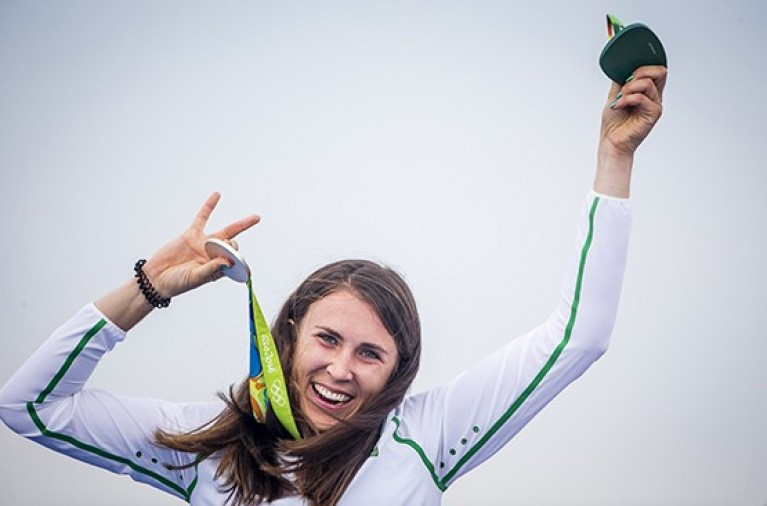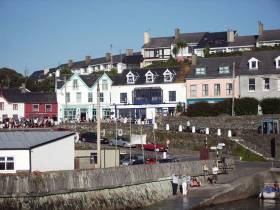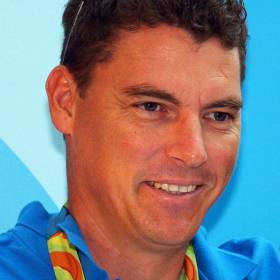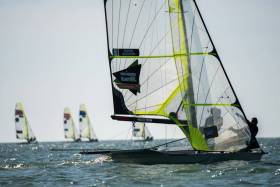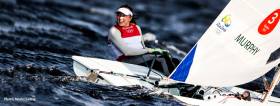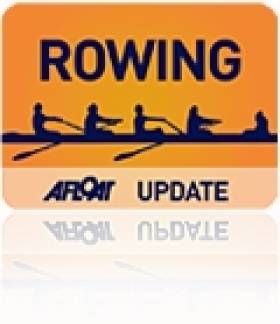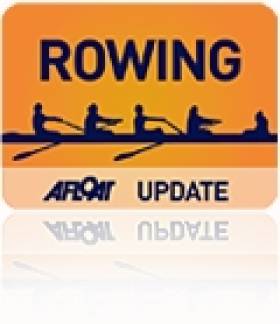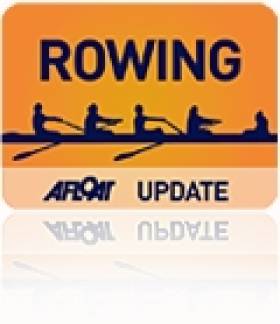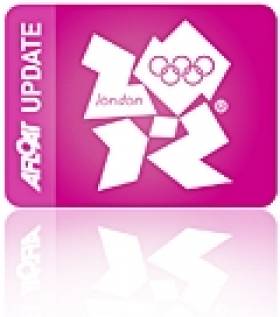Displaying items by tag: high performance
High performance sport receives an emphasis in the draft Programme for Government published this afternoon (Monday 15 June) after the leaders of Fine Gael, Fianna Fáil and the Green Party reached agreement following marathon weekend talks.
Under the heading ‘High Performance’, the document (attached below) states: “Sport can engender enormous national and local pride when our teams and athletes perform well. It is integral to our culture, identity and history. Our high performance athletes inspire the next generation, reinforcing high standards and motivating children in every community.”
To that and, the Government says it will:
- Publish a High Performance strategy to define Ireland’s direction for at least 12 years, and review it every four years. The strategy will set clear and ambitious medal targets over three Olympic/Paralympic cycles.
- Facilitate efforts to explore business and philanthropic funding of high performance sport to complement State funding.
- Step up State funding to compete with other highly-successful countries of our size, and to facilitate a multi-cycle approach to high performance funding.
- Develop initiatives to increase the level of media coverage, nationally and locally, of women’s sport and attendance at women’s sport event.
While continuing initiatives such as the Sports Capital Programme, the programme also includes a plan to develop a Sports Technology Innovation fund “to encourage research and development of interventions to support participation and excellence”.
Under rural development, the document includes a promise to “support, through a consultative process, community groups, arts and cultural bodies, sports clubs, voluntary organisations and charities to recover and enhance their impact in the aftermath of Covid-19”.
Sports clubs in general will also note that the draft programme promises to tackle insurance costs by, among other measures, “considering changes to the Occupiers Liability Act and the Civil Liability Act (duty of care) to strengthen waivers and notices to increase protections for consumers, businesses, sporting clubs and community groups”.
Baltimore Sailing Club Announces High Performance Fund
Baltimore Sailing Club in West Cork is now seeking expressions of interest from suitably qualified applicants for its High Performance Fund.
Details of guidelines for the Olympic Pathway support fund and the application form can be downloaded from the Baltimore Sailing Club website HERE.
The closing date for applications is Friday 21 December.
#Tokyo2020 - Three-time Olympic medallist Vasilij Žbogar has joined Irish Sailing’s high performance squad to coach the men’s Laser team.
Žbogar will take over coaching for Finn Lynch and Liam Glynn’s Tokyo 2020 aspirations on a team set to be bolstered later this year by the addition of Ewan McMahon and Johnny Durcan.
The quartet will benefit from a wealth of experience eon the part of the decorated Slovenian sailor. Making his Olympic debut in Sydney in 2000, Žbogar won his first Olympic medal with a bronze in Athens four years later.
When he took silver in Beijing 2008, Žbognar became only the third man in history to win two Olympic Laser medals.
After a move to the Finn class, Žbogar kept up his high-performing ways with a strong sixth-place finish at London 2012, a bronze in the 2015 Finn Worlds and silver at his fifth and final Olympics in Rio two years ago.
Over his 16 years at sailing’s pinnacle, Vasilij Žbogar became one of Slovenia’s most successful athletes — and now Ireland’s Laser squad has the chance to benefit form his expertise.
More on this on the Afloat.ie podcast with team manager James O'Callaghan here.
Performance Sailing Gets €735K From Sport Ireland For 2018
#IrishSailing - Irish Sailing has received the second-highest allocation from Sport Ireland for High Performance Programmes in 2018.
On Thursday 1 February, Sport Minister Brendan Griffin announced this year’s around of investment for 2018, which sees Ireland’s national governing body for sailing get €735,000 for high performance projects — second only to Athletics Ireland at €790,000 — on the eve of the first qualifiers for the 2020 Olympic Games in Tokyo.
Irish Sailing also receives €323,000 in core funding under the €10.8 million investment package for National Governing Bodies for Sport, and €18,000 under the Women in Sport programme.
Commenting on the high performance grant, Irish Sailing performance director James O’Callaghan said: “It is a fantastic endorsement of our sport and reflects the efforts put in by our sailors, coaches and clubs throughout the country into the performance pathway.
“Despite the generous support, the pathway still faces challenges to deliver a world class programme from junior to Olympic classes.
“2018 is Olympic qualifying year which is a huge milestone in the quadrennial. Our next challenge is to secure additional funding for capital equipment.
O’Callaghan added: “The Irish Sailing Foundation, set up to bridge the financial gap, was a big contributor to the programme in 2017 and it is hoped this will grow further in 2018 enabling continued success.”
Other aquatic sporting bodies benefitting from this year’s funding package include Rowing Ireland, with €210,000 in core funding, €525,000 under the High Performance programme and €45,000 under Women in Sport; and Canoeing Ireland, which receives €205,000 in core funding and €40,000 under High Performance.
The Irish Surfing Association gets €64,000 to match its core funding in 2017, plus €7,000 under Women in Sport, while the Irish Underwater Council, which governs diving and other subaquatic sports, receives €60,000 in core funding.
Meanwhile, the Irish Waterski & Wakeboard Federation gets €20,000 core funding, and the Angling Council of Ireland receives €10,000 core funding plus €4,000 under Women in Sport.
These grants are in addition the funding allocated under the 2017 Sports Capital Programme for local projects and regional developments that were announced in November and December respectively.
Sailing & Rowing Get Sport Ireland Funding Boost As Rio Review Says Ireland Falls Short
#Tokyo2020 - Funding for Irish sailing and other watersports remains broadly unchanged in Sport Ireland’s allocations for National Governing Bodies in 2017 — though programmes encouraging women in rowing have received a boost.
However, the accompanying review of the Irish Olympic performance in Rio acknowledges that Ireland's medal target was not reached – raising questions of expectations for Tokyo 2020.
The report highlights that Ireland “does not fund sport seriously”, according to Irish Times sportswriter Johnny Watterson, who cites the absence of long-term funding in favour of annual, non-guaranteed allocations.
More than €20 million for sporting bodies and athletes, in line with last year’s allocations, was announced by Minister of State for Sport Patrick O’Donovan this week as Sport Ireland also published its review of the 2016 Olympic Games in Rio.
The 2017 investment comprises €1.8 million in direct athlete investment; €7.2 million in high performance programme funding; €10.8 million in National Governing Bodies core funding; and €600,000 for the Women in Sport Programme.
The Irish Sailing Association (€323k), Rowing Ireland (€210k), Irish Surfing Association (€65k) and Irish Underwater Council (€60k) will get sums unchanged from 2016, though Canoeing Ireland sees a cut in its allocation by €10,000 (€205k to €195k).
Sailing (€18k) and surfing (€7,000) also see unchanged sums for their Women in Sport programmes, but Rowing Ireland receives a boost to €45,000 from €35,000 in 2016.
Sport Ireland highlights that more than 15,000 women and girls participated in Rowing Ireland’s ‘Get Going Get Rowing’ programme last year, while over 300 took part in the Irish Surfing Women in Sport initiative, and more than 9,000 availed of the Swim Ireland programme for female participation.
In allocations for high performance programmes, the ISA’s share rises by €100,000 to €735,000 for 2017, while Rowing Ireland sees an even bigger boost in its HP grant from €400,000 last year to €525,000.
Canoeing Ireland, however, sees its HP allocation cut by almost 40% to from €65,000 €40,000.
Welcoming the increase in sailing investment, ISA high performance director James O’Callaghan called for perspective on the figures involved.
“We’re pleased with the €100,000 increase but the truth of the matter is we started off the year with a €60,000 deficit because of the cost of [competing in] Rio. So really, it’s status quo for sailing,” he said.
Athlete investment
In direct athlete investment, 16 international athletes are awarded ‘Podium’ funding for 2017 under the International Carding Scheme.
In rowing, Rio Olympic medallists Gary and Paul O’Donovan, along with Sanita Puspure, will each receive €40,000 in Podium funding, while Rio’s Laser silver medallist Annalise Murphy is the only sailor to qualify for that funding level.
Sinead Lynch, Claire Lambe (€20k each), Mark O’Donovan, Shane O’Driscoll and Denise Walsh (€12k each) round out the rowing recipients in the 2017 funding round.
Among other sailing recipients, Ryan Seaton and Matt McGovern each receive €20,000, Finn Lynch gets €12,000 and €16,000 goes to crew/transition athletes.
In canoeing and kayaking, Patrick O’Leary (para canoe), Tom Brennan, Liam Jegou, Jenny Egan and Michael Fitzsimon will each get €12,000 of International level funding.
Sailing ‘must diversify’
Meanwhile, Sport Ireland says its Rio Review provides a “blueprint” for campaigns heading into the Tokyo Olympics in 2020.
In sailing, two of Ireland’s four classes competed in Rio “performed at or near expectations”, with the others cites for “credible results”.
The report adds: “Given it has been 36 years since Ireland last won an Olympic medal, this is an extremely exciting achievement and provides evidence of the success of the longer term strategy that ISA has been following for many years now.”
In its recommendations for sailing going forward, the report says work is underway “to diversify income to support the performance programme.
“In sports like sailing with significant capital needs, allocating funding on an annual basis is unhelpful. The sport and the athletes would be far more able to launch and deliver credible and performance based campaigns if funding was known over a longer period.”
However, the report also suggests that care must be taken by the ISA to remain within its budget allocation or “consider how difficult decisions might be made to invest in classes
with realistic chances of medalling” or other significant success.
Sailing would also benefit from more class competition within Ireland, the report adds.
“The review has identified the timescale to remedy the problems [within sailing],” said the ISA’s O’Callaghan. “But when are we going to see action to fix it?”
The picture for rowing is also less rosy, as Sport Ireland says “a lack of development structure and pathway is preventing the identification and progression of rowers to international
level”.
Despite that warning, Sport Ireland remains confident that “the current situation of recent history and success within this Olympic cycle represents a very strong position to be in.”
Consistency in training camps and post-training sessions is recommended by the report, which also suggests the use of biometric data to inform team performance.
The full Sport Ireland Rio Review is available as a PDF to read or download HERE.
Rowing Ireland Recruiting High Performance Coaches
#Rowing: Rowing Ireland is seeking new coaches. The governing body for the sport in Ireland says: “Building on its success in the Rio Olympics, Rowing Ireland now wishes to recruit one or more High Performance Coaches to work in its Olympic Programme with the target of delivering further podium competitive performances at the 2020 Olympic Games in Tokyo.”
The closing date for expression of interest is Sunday, October 16th.
The first Ireland trial is set for this weekend (October 8th and 9th.
Rowing Ireland Appoints McLachlan as Lead Coach
# ROWING: Don McLachlan has been chosen as lead coach in the Ireland system, to succeed Adrian Cassidy. In a statement, Rowing Ireland said: Rowing Ireland is pleased to announce that Don McLachlan has been appointed Lead Coach to the Rowing Ireland High Performance Programme. He will take up appointment at the end of April.
McLachlan, a New Zealander, is coming to Ireland from the role of Head of Rowing, Imperial College Boat Club, one of the premier University clubs in the UK and a designated Great Britain High Performance centre. Since 2005 he has coached British medal winning crews at the World Championships, the European Championships and the U23 World Championships.
As a rower, McLachlan was a member of the New Zealand U23 national squad, the Olympic development squad and was many times a New Zealand national champion.
Commenting on McLachlan's appointment, Morten Espersen, Rowing Ireland High Performance Director said: “Don comes to Irish Rowing with an excellent track record as a coach at the highest level of Great British club rowing and with the experience of coaching successful World Championship crews at senior and U23 levels. I believe that he will provide excellent leadership to our High Performance coaching team and will work well with both elite athletes and key coaches in Irish rowing. His appointment will ensure that our international athletes will be provided with every opportunity to realise their full potential during his tenure.”
McLachlan said: “I am delighted to be joining the Irish Rowing High Performance team and am excited by the prospect of working with Morten and the squad of up and coming Irish elite rowers. I look forward to getting to know the athletes and to working with them to help Irish rowing achieve its full potential on the International stage.”
McLachlan will be based in the National Rowing Centre in Cork.
# ROWING: One hundred and twenty rowers are listed to compete at the Rowing Ireland Assessment in Newry tomorrow and Sunday. The ergometer test will be on Saturday and the on-the-water time trial is set for 11 o’clock on Newry Canal on Sunday.
This will be the first assessment since Morten Espersen has taken over as High Performance Director.
| Rowing Ireland 2000m Ergo Assessment |
|---|
| Newry, February 9th 2013 |
| HP Team |
| 07/02/2013 |
| Row Labels Testing Time Ergo Number |
| Athlone BC |
| munnelly, patrick 13:20 6 |
| Athlunkard BC |
| Gallagher, Ewan 13:20 7 |
| McNamara, Ger 13:20 8 |
| Bann RC |
| Barry, Erin 12:00 2 |
| Wray, Matthew 13:20 1 |
| Belfast BC |
| Boreham, Adam 13:20 2 |
| English, Jasmin 12:00 3 |
| Jacques, Bridget 12:00 4 |
| Mitchell, Johnathan 13:20 3 |
| Taggart, Emily 12:00 9 |
| Turner, Kirsty 12:00 1 |
| CAIBC |
| McCullough, Philip 13:20 5 |
| Castleconnell Boat Club |
| O'Connor, Eoghan 11:20 8 |
| Whittle, Eoghan 11:20 9 |
| CIT RC |
| O'Donovan, Gary 12:40 9 |
| O'Driscoll, Shane 12:20 11 |
| Clonmel RC |
| Chadfield, Alex 13:20 10 |
| Channon, Stewart |
| Lonergan, Sean 13:20 11 |
| Prendergast, Alan 13:20 9 |
| Colaiste Chiarain RC |
| Hogan, Kevin 11:20 11 |
| Colaiste Iognaid RC |
| McGlacken, Kai |
| Walls-Tuite, Eoghan |
| Commercial RC |
| Dolan, Sarah 13:00 4 |
| Lambe, Eimear 13:00 10 |
| Rodger, aisling 13:00 9 |
| yeomans, william 11:20 12 |
| Cork BC |
| Beechinor, Claire 12:40 1 |
| Hamel, Leonie 12:40 3 |
| Kilbane, Laura 12:40 4 |
| McCarthy, Neil 11:00 2 |
| McClaughlin, Megan 12:40 2 |
| Murphy, Stephen 11:00 3 |
| Murray, Charlie 11:00 1 |
| DUBC |
| Flaherty, Paul |
| DULBC |
| Dolan, Sinead 13:00 5 |
| O'Brien, Sally 13:00 6 |
| Fermoy RC |
| Blackburne, Megan 12:00 11 |
| Shinnick, Hilary 12:00 10 |
| Galway RC |
| Murtagh, Fiona 12:40 6 |
| Garda RC |
| Laffey, Christopher 12:40 5 |
| Killorglin RC |
| Dukarska, Monika 12:00 7 |
| Hyde, Zoe 12:00 12 |
| Lagan Scullers Club |
| Hethertington, Thomas |
| Lee RC |
| Breen, Mark 11:00 8 |
| Buckley, Daniel 11:00 5 |
| Keogh, Sam 11:00 6 |
| Mitchel, John 11:00 4 |
| O Sullivan, Rory 11:00 7 |
| Stone, Evan 11:00 9 |
| Molesey BC |
| Keenan, Colm 12:20 7 |
| Muckross RC |
| O'Connor, Kara 13:00 11 |
| Neptune RC |
| Fogarty, Eoghan 11:40 9 |
| Horan, Conor 11:40 8 |
| Mulvaney, Shane 11:40 10 |
| NUIGBC |
| Keogh, Aifric |
| Mullarkey, Edward 12:20 2 |
| O'Connor, Sean 12:20 1 |
| Old Collegians BC |
| Puspure, Sanita 12:00 8 |
| Portadown BC |
| McKeown, Sam 11:40 12 |
| Portora BC |
| Anderson, Karl 13:40 1 |
| Beacom, Alice 13:40 5 |
| Clarke, Elizabeth 13:40 3 |
| Finlayson, Chloe 13:40 4 |
| Mulligan, Phoebe 13:40 6 |
| Murry, Ewan 13:40 2 |
| Presentation College RC |
| Cregan, Thomas 14:00 6 |
| Keohane, Brian 14:00 4 |
| Keohane, David 14:00 5 |
| Keohane, Kevin 14:00 3 |
| QULBC |
| Leahy, Aoife |
| RBAIRC |
| McKillen, Gareth 13:20 4 |
| Robinson, Ben 11:40 11 |
| Shandon B.C. |
| Callanan, Daisy 11:40 6 |
| Carroll, Luke 11:40 4 |
| Casey, Jack 11:40 2 |
| Harrington, Andy 11:40 1 |
| Hennessy, Colm 11:40 5 |
| O'Sullivan, Clodagh 11:40 3 |
| Scannell, Clodagh 11:40 7 |
| Shannon RC |
| Blackwell, James 14:00 2 |
| Carmody, Conor 14:00 1 |
| Coll, Erin 13:00 3 |
| Gilligan, Ruth 13:00 1 |
| McHugh, Lauren 13:00 2 |
| Skibbereen RC |
| Burns, Aodhan 12:40 7 |
| Dineen, Shelly |
| Hegarty, Paddy 12:40 8 |
| Ryan, Justin 12:20 8 |
| Ryan, Matthew 12:40 10 |
| Walsh, Bernadette 12:40 12 |
| Walsh, Denise 12:40 11 |
| St Michaels RC |
| Clavin, Sheila |
| Despard, Evan 12:20 4 |
| McCarthy, Hannah 13:00 7 |
| Murphy, Sarah 13:00 8 |
| O Malley, David 12:20 5 |
| O'Brien, Kate |
| St.Josephs RC |
| Egan, James 11:20 2 |
| Fallon, Kevin 11:20 5 |
| Finnerty, Colin 11:20 6 |
| Kinneen, Aidan 11:20 1 |
| Mcquillan-Tolan, Fionnan 11:20 7 |
| Silke, Jack 11:20 3 |
| smyth, jack 11:20 4 |
| Tribesmen RC |
| McCrohan, Siobhan |
| UCCRC |
| Kenny, Niall 12:20 9 |
| UCDBC |
| Bell, Andrew 12:20 12 |
| Bennett, Siofra |
| Collins, Grace |
| Finnegan, Orla |
| Lambe, Claire 12:00 6 |
| Neale, David 12:20 6 |
| Ni Reachtagain, Claire |
| O'Donovan, Paul 12:20 10 |
| ULRC |
| Penny, Stephen 11:20 10 |
| University of Surrey |
| O'Reilly, Nathan 12:20 3 |
| Waterford BC |
| GOFF, Andrew 11:00 10 |
| O'HANLON, Mike 11:00 11 |
| (blank) |
| Bulman, Amy 12:00 5 |
Rowing Ireland Appoint Espersen as New High Performance Director
# ROWING: Rowing Ireland have chosen Morten Espersen to be their new High Performance Director. The 61-year-old served as HPD in Denmark from 1993 to 2001 and went on to chair Denmark’s executive board for elite rowing. Denmark has had great success in the last two decades: their premier crew, the lightweight four, took three gold and two bronze medals in the last five Olympic Games, while the lightweight double scull took gold at London 2012. Fie Udby Erichsen also took a silver medal in the women's single sculls in London.
In a statement released by Rowing Ireland, Espersen said: “Rowing Ireland has the potential to succeed at the highest level and, working together with all stakeholders, I believe that this goal can be achieved.”
Espersen will take up his post in February. He will be based at the National Rowing Centre in Cork. He succeeds Martin McElroy, who has recently been appointed Performance Director for men's rowing in Canada.
'Podium Athletes' Face Funding Cuts in 2013
#OLYMPICS - Yesterday Ireland's Olympic hopefuls celebrated recognition of their success in the 2012 round of funding.
But cuts to the budget of the Irish Sports Council (ISC) have prompted a "major" review of high performance programmes from 2013 onwards, the Irish Independent reports.
Finbarr Kirwan, director of high performance at the ISC, said: "Changes are coming, things are tight and we will have to make strategic cuts in the next two years."
The result could be fewer grant awards of lesser value for athletes, as Olympic qualification standards are set to get tougher from here on out.
The two tiers below 'podium class' - in which individuals receive awards of €20,000 and €12,000 respectively - are expected to be hardest hit in the review.
As previously reported on Afloat.ie, canoeing's Eoin Rheinisch, swimmer Grainne Murphy and sailors Annalise Murphy, Peter O'Leary and David Burrows each received the top level of funding of €40,000 each, which is on a par with last year's support.
The Irish Independent has more on the story HERE.



























